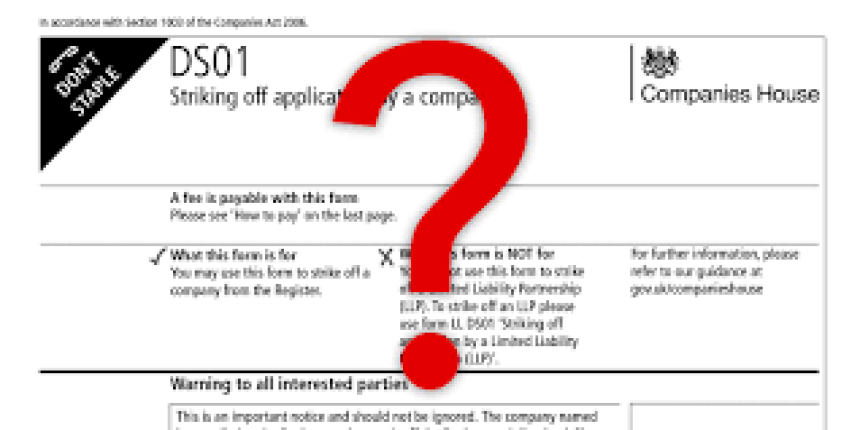
Who is responsible for filing the annual confirmation statement?
Every company needs to keep its records up-to-date with the relevant authorities. One crucial part of this responsibility is filing the annual confirmation statement. This document is essential for maintaining transparency and compliance. But who exactly is responsible for filing this statement?
Introduction
Every company needs to keep its records up-to-date with the relevant authorities. One crucial part of this responsibility is filing the annual confirmation statement. This document is essential for maintaining transparency and compliance. But who exactly is responsible for filing this statement?
What is an Annual Confirmation Statement?
An annual confirmation in the UK statement is a legal document that companies must submit to confirm that the information held by the company register is accurate and up-to-date. This includes details about the company's directors, shareholders, and registered office address. The purpose is to ensure that the public record reflects the current state of the company.
Understanding the Annual Confirmation Statement
Before delving into the responsibilities, it’s important to understand what the annual confirmation statement entails. This document provides a snapshot of key information about a company, including:
- The company’s registered office address.
- Details of the directors and company secretary (if applicable).
- Shareholder information and share capital details.
- The nature of the company’s business activities.
Filing the confirmation statement ensures that Companies House has the most current information, which is critical for public records and legal compliance.
The Role of Company Directors
In most cases, the primary responsibility for filing the annual confirmation statement lies with the company’s directors. Directors are legally obligated to ensure that the company complies with all statutory requirements, including the submission of the annual confirmation statement. Here’s a breakdown of their responsibilities:
Preparation and Filing:
Directors must ensure that the annual confirmation statement is accurately prepared and filed with Companies House. While they can delegate the actual filing to a company secretary or an accountant, the ultimate responsibility for ensuring that the statement is submitted correctly and on time rests with the directors.
Accuracy of Information:
Directors are responsible for ensuring that all information included in the confirmation statement is correct. This includes updating any changes to the company’s registered office, directors, and shareholder details.
Timeliness:
The confirmation statement must be filed annually, typically within 14 days of the anniversary of the company’s incorporation or the end of the financial year. Directors must ensure that this deadline is met to avoid penalties.
The Role of the Company Secretary
For companies that have appointed a company secretary, this individual often plays a significant role in managing administrative tasks, including the preparation and filing of the annual confirmation statement. However, while the company secretary may handle the practical aspects of filing, the ultimate responsibility for ensuring that the statement is accurate and timely remains with the directors. The company secretary’s role includes:
- Administrative Support: Assisting with the preparation of the confirmation statement by gathering and updating relevant information.
- Filing: Submitting the confirmation statement to Companies House.
- Record Keeping: Maintaining accurate records of the company’s details and changes throughout the year.
The Role of Accountants and External Advisers
Many companies, especially those without an in-house company secretary, choose to enlist the help of accountants or external advisers to handle the filing of the annual confirmation statement. These professionals provide valuable support by:
- Preparation: Assisting with the preparation of the confirmation statement by ensuring all necessary information is included and accurate.
- Filing: Filing the statement with Companies House on behalf of the company.
- Compliance: Advising on compliance matters and ensuring that all statutory obligations are met.
Even though accountants or external advisers can handle the technical aspects of the filing process, the responsibility for ensuring that the statement is filed accurately and on time still rests with the company’s directors.
Consequences of Non-Compliance
Failing to file the annual confirmation statement on time can have serious consequences for a company. These include:
- Fines and Penalties: Companies House may impose fines for late filings, which increase if the delay continues.
- Legal Action: Persistent non-compliance may lead to legal action against the company and its directors.
- Impact on Company Status: Continuous failure to file can lead to the company being struck off the Companies House register, resulting in the loss of the company’s legal status and assets.
Who is Responsible for Filing?
The primary responsibility for filing the annual confirmation statement lies with the company's directors. They are legally obligated to ensure that the company complies with statutory requirements, including the timely submission of this statement.
Company Secretaries
In some companies, a company secretary is appointed to handle administrative tasks, including filing the annual confirmation statement. The company secretary acts on behalf of the directors to ensure compliance.
Authorized Persons
In certain cases, authorized persons, such as accountants or legal advisors, may be tasked with filing the confirmation statement. These individuals are granted permission by the directors to manage this duty on the company’s behalf.
Roles and Responsibilities
Directors must ensure that the confirmation statement is accurate and submitted on time. They should review the information regularly and update any changes in a timely manner. Company secretaries are responsible for preparing the statement, gathering necessary information, and submitting it before the deadline. They also handle any correspondence related to the filing.
Authorized Persons' Duties
Authorized persons, like accountants, must maintain accurate records and ensure the timely submission of the statement. They are accountable to the directors for their actions. Failing to file the annual confirmation statement can result in legal actions against the company and its directors. This could include court orders or even the striking off of the company from the register.
Financial Penalties
There are significant fines for late or non-filing of the confirmation statement. These penalties can accumulate quickly, adding a financial burden to the company. Non-compliance can damage the company's reputation and affect its ability to do business. It may also lead to difficulties in securing loans or investment.
Filing ProcessSteps to File
- Review Company Information: Ensure all details are up-to-date.
- Complete the Form: Fill out the necessary forms accurately.
- Submit Online or by Mail: Use the preferred method of submission.
- Pay the Fee: Ensure the filing fee is paid promptly.
Necessary Documents
You'll need the latest company details, including director information, shareholder details, and the registered office address. The confirmation statement must be filed annually, within 14 days of the review period. Ensure all information is accurate to avoid legal issues.
Missed Deadlines
Set reminders to avoid missing the filing deadline. Double-check that all required sections of the form are complete. Use digital calendars or software to remind you of the filing deadline. Review all details thoroughly before submission. Consult with a legal advisor or accountant to ensure compliance.
Benefits of Timely Filing
Staying compliant with legal requirements avoids penalties and legal action. Timely filing demonstrates professionalism and reliability. Meeting deadlines helps avoid financial penalties.
Conclusion
Filing the annual confirmation statement is a critical task that ensures your company remains in good standing. While directors hold the primary responsibility, company secretaries and authorized persons also play vital roles. Ensuring accurate and timely submissions helps avoid legal and financial repercussions, enhancing your business's reputation and operations.
FAQs
1. What Happens if the Information Changes After Filing? If there are changes, you need to update the records promptly and possibly file another statement.
2. Can a Third Party File on Behalf of the Company? Yes, authorized persons like accountants or legal advisors can file the statement.
3. How Often Should the Statement be Filed? It should be filed annually, within 14 days of the review period.
4. What is the Cost of Filing? The cost varies by jurisdiction but is generally a nominal fee.
5. How to Correct Errors in a Filed Statement? You can file an amended statement with the corrected information.

Best Banquet Halls in Faridabad for Engagements, Weddings, and Birthda...
Discover the best banquet halls in Faridabad with prices, small party halls, and affordabl...



